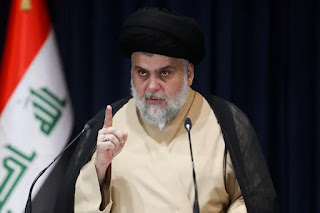Zionism, as a political and cultural movement advocating for the return of Jews to their ancestral homeland and the establishment of a Jewish state in Palestine, emerged in the late 19th century amid rising anti-Semitism in Europe. The movement was multifaceted, incorporating a range of ideologies and motivations. A significant question within this historical context is whether Zionism was founded by Ashkenazic Jews. This article explores the origins of Zionism, its founders, and the contributions of various Jewish communities, particularly Ashkenazic Jews, to the movement's development.
The Historical Background of Zionism
The origins of modern Zionism can be traced back to various historical, social, and political factors, including the Enlightenment, the rise of nationalism, and the increasing persecution of Jews in Europe. Before the modern Zionist movement took shape, Jewish communities had maintained a connection to the land of Israel through religious beliefs, prayers, and cultural practices. However, it was the late 19th century that marked a significant turning point.
The Dreyfus Affair in France, where a Jewish army officer was falsely accused of treason, highlighted the pervasive anti-Semitism in Europe and underscored the need for a political solution to the Jewish question. In this context, Theodor Herzl, often regarded as the founder of political Zionism, emerged as a central figure advocating for the establishment of a Jewish state.
The Role of Ashkenazic Jews in Zionism
Ashkenazic Jews, who primarily originated from Central and Eastern Europe, played a crucial role in the development of Zionism. The majority of early Zionist leaders, including Herzl, were Ashkenazic Jews. They were motivated by a combination of factors, including the desire for national self-determination, the longing for a return to the land of their ancestors, and the need for a safe haven from persecution.
Herzl, born in Budapest and raised in Vienna, was deeply influenced by the socio-political climate of Central Europe. His experiences as an assimilated Jew facing anti-Semitism shaped his conviction that Jews could not fully integrate into European societies and that a national home was essential for Jewish survival. Herzl's writings and speeches galvanized support among Ashkenazic Jews, leading to the First Zionist Congress in 1897, where the foundations of organized Zionism were laid.
Diversity Within Zionism
While Ashkenazic Jews were prominent in the Zionist movement, it is essential to recognize that Zionism was not exclusively a phenomenon of this demographic. Various Jewish communities contributed to the movement, including Sephardic and Mizrahi Jews, who had their own historical connections to the land of Israel.
Sephardic Jews, who descended from Jews expelled from Spain and Portugal during the Inquisition, had a long-standing connection to the land of Israel, particularly during the Ottoman Empire. Prominent Sephardic leaders, such as Rabbi Abraham Isaac Kook, played vital roles in early Zionist efforts. Kook, who became the first Ashkenazi Chief Rabbi of Mandatory Palestine, emphasized the spiritual and religious significance of the Jewish return to the land, bridging the gap between religious and secular Zionists.
Mizrahi Jews, originating from Middle Eastern countries, also had historical ties to the land of Israel and contributed to the Zionist movement. They faced their own challenges in the context of modern nationalism and the establishment of Israel. The diverse backgrounds and experiences of these communities enriched the Zionist discourse, although Ashkenazic voices often dominated early narratives.
The Influence of Jewish Nationalism
Zionism was shaped by broader trends of nationalism in Europe, which often drew from Romantic notions of ethnicity and cultural identity. This nationalism resonated deeply with Ashkenazic Jews, who sought to reclaim their cultural heritage and assert their identity in the face of assimilation and persecution. The revival of the Hebrew language and the emphasis on Jewish culture were significant components of this movement.
The work of cultural Zionists, such as Ahad Ha'am, who championed the revival of Jewish culture and identity in the land of Israel, reflected the aspirations of Ashkenazic Jews. Ha'am argued for a spiritual center in Israel rather than solely a political state, emphasizing the importance of cultural and religious life in the Jewish homeland. His ideas contributed to the philosophical underpinnings of Zionism, demonstrating the diverse thought within the movement.
The Shift in Demographics
With the establishment of the State of Israel in 1948, the demographic landscape shifted significantly. While Ashkenazic Jews had been instrumental in the early years of Zionism and the founding of the state, the influx of Jews from Arab and Muslim countries, many of whom identified as Mizrahi or Sephardic, began to transform Israeli society.
The integration of Mizrahi Jews into the new state highlighted the complexities of identity within Zionism. Many Mizrahi Jews faced discrimination and marginalization in the early years of the state, leading to tensions between different Jewish communities. The narratives and experiences of these communities became increasingly recognized within the broader discourse on Israeli identity and Zionism.
Conclusion
In conclusion, while Ashkenazic Jews were indeed foundational to the establishment of modern Zionism, it is essential to view the movement through a broader lens that acknowledges the contributions of various Jewish communities, including Sephardic and Mizrahi Jews. Zionism emerged as a response to the challenges faced by Jews in Europe and was shaped by a diverse array of voices, ideologies, and historical contexts.
The relationship between Zionism and Jewish identity is complex and multifaceted, reflecting a tapestry of experiences that extend beyond any single demographic. As Israel continues to evolve, understanding the diverse roots of Zionism becomes crucial in addressing contemporary issues related to identity, representation, and the ongoing discourse surrounding the Israeli-Palestinian conflict.
Recognizing the significant role that Ashkenazic Jews played in the founding of Zionism does not diminish the contributions of other Jewish communities; rather, it enriches the understanding of a movement that has profoundly impacted the course of Jewish history and the geopolitical landscape of the Middle East. The legacy of Zionism remains a critical topic of discussion, inviting further exploration of the narratives that shape Jewish identity and the complexities of nationhood in the modern era.




